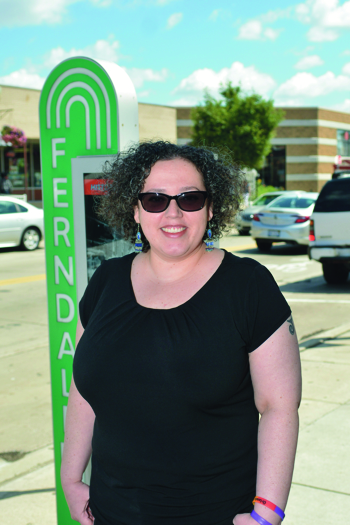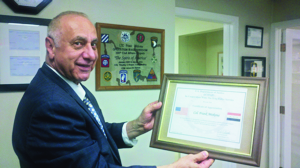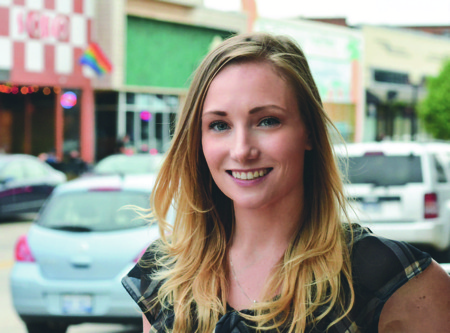Story by Sara E. Teller
Photos by Bernie LaFramboise
If you’ve ever had fresh eggs for breakfast,” Holly Belian says, “you’ll understand the first reason we wanted to raise hens.” Holly and her wife Julia have lived in Ferndale since the summer of 2009, and have been raising hens for the past four years.
Chickens in Ferndale? You bet.
Ferndale is one of several cities in Michigan that allow hens to be raised on your property. The list includes Berkley, Hazel Park and Royal Oak, among others. Ferndale has about two dozen personal chicken coops within the city. Holly and Julia both raised hens before, and when the opportunity became available to raise hens in Ferndale they wanted to give it a shot. They had both raised them in rural settings, in Southern Illinois and Texas, and trying it in an urban setting was intriguing.
The Details
City Ordinance No 1118 Sec 5-8 allows for residents in single-family homes to keep up to three hens in the backyard. Rental properties must supply the city with a letter of approval from the landlord. You need to submit a dimensioned site plan and pay a $35 permit fee at the time you submit your paperwork. The dimensioned site plan must include property lines, structures, set-backs, driveway and elevation of coop with materials. Plans must be to scale. Slaughtering of any chickens at the property is prohibited.
Benefits Of An Urban Farm
Besides delicious eggs, they’re part of Holly and Julia’s retirement plan.“We bought our house primarily for the extra deep backyard, and put in a big vegetable garden,” Holly said. “We also planted lots of fruit trees and bushes. Add in fresh eggs from the chickens, and we can almost become independent from store-bought foods.”
“The city presents a unique set of challenges and benefits to a homeowner,” said Laura Mikulski, who runs the web site, FerndaleChickens.com. “We have hawks and raccoons in Ferndale, which are chicken killers and strong steps have to be taken to prevent them from killing your birds. They add a layer of improvement to our sandy soil in Ferndale by way of their manure, which helps urban gardeners like myself.”
Ferndale resident Jill Marentette said hens fertilize gardens very well, and some residents might move their coops and the garden to get the maximum benefit.
Secret Garden
On a visit to Holly and Julia’s backyard, one finds more than just hens. Packed deep behind a lush growth of 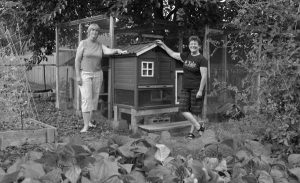 blackberries, peach trees and tomato plants is the coop. There, we meet Dottie (a speckled Sussex), Figaro (Austrolorp) and Lacey (double-laced Barnevelder). Their hens survive just fine in the winter, although they don’t like stepping on the snow. They also have a tiny house for shelter, warmth and, of course, laying eggs. Hens typically lay an egg about once every 25 hours. So, on a given day, Holly and Julia get anywhere from zero to three eggs. While the $35 yearly permit fee may not make eating your own eggs much more feasible than buying them at a store, nothing beats homemade. “Their eggs are amazing,” Holly said. “Truly delicious, and we know exactly what goes into them.” Even the good, organic eggs you pick up at the farmer’s market can’t stand up to getting them from your own backyard.
blackberries, peach trees and tomato plants is the coop. There, we meet Dottie (a speckled Sussex), Figaro (Austrolorp) and Lacey (double-laced Barnevelder). Their hens survive just fine in the winter, although they don’t like stepping on the snow. They also have a tiny house for shelter, warmth and, of course, laying eggs. Hens typically lay an egg about once every 25 hours. So, on a given day, Holly and Julia get anywhere from zero to three eggs. While the $35 yearly permit fee may not make eating your own eggs much more feasible than buying them at a store, nothing beats homemade. “Their eggs are amazing,” Holly said. “Truly delicious, and we know exactly what goes into them.” Even the good, organic eggs you pick up at the farmer’s market can’t stand up to getting them from your own backyard.
Pesky Or Bothersome? Hardly.
These hens don’t mind strangers, although Dottie did give me a couple pecks on the leg when I entered her turf. But who wouldn’t be protective when a strange man comes into your coop? The hens made barely a peep.Laura even touted how great it can be to get to know a hen’s personality. “They can be kind to each other, or cruel, just like people,” she said. “They have a depth to their personality that I never expected. All of this has made me even more conscious of my purchasing habits, as the environment of factory farming seems more and more impossibly cruel after you see how much joy the birds take in living and being able to do chickeny things.”
Easy Upkeep
“There is almost no maintenance,” Holly said. “Feed has to be bought, but three hens don’t eat much. And instead of scraps going into the compost heap, we give them to the chickens to supplement. Fresh water  every few days in their thermos. We also provide some grit to help them process the eggs, and diatomaceous earth to roll in during the summer to keep them bug free.” Holly and Julia clean or resurface their yard two times a year, and regularly check the yard to make sure it’s secure from critters. Julia said they do see some digging from time to time, but their hens have never been in danger.
every few days in their thermos. We also provide some grit to help them process the eggs, and diatomaceous earth to roll in during the summer to keep them bug free.” Holly and Julia clean or resurface their yard two times a year, and regularly check the yard to make sure it’s secure from critters. Julia said they do see some digging from time to time, but their hens have never been in danger.
Learn More
Do you know anybody who raises hens? Interested in pursuing it yourself? Check out ferndalechickens.com for easy-to-find and easy-to-read information on what Ferndale residents needs to know. You’ll also find help tips and education blog posts. “We support each other and communicate in times of need,” Laura said. “This is true of Ferndale and beyond. Neighboring cities use Facebook and social media to reach out to fellow chicken keepers for advice and help when medical needs arise.”


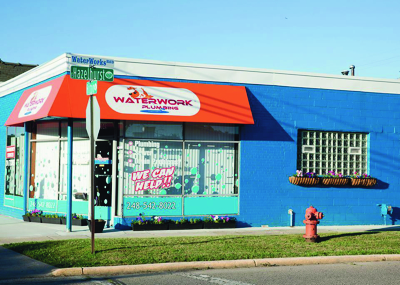
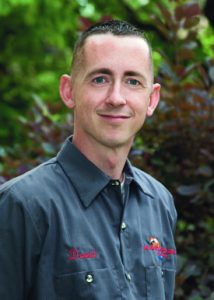 a very well-paying job.” According to David, there’s a shortage of plumbers coming from the next generation. Currently, there is a specific need at WaterWork for journeymen and master plumbers. “If someone walks through my door with a lot of experience, they’re not leaving,” David laughs.
a very well-paying job.” According to David, there’s a shortage of plumbers coming from the next generation. Currently, there is a specific need at WaterWork for journeymen and master plumbers. “If someone walks through my door with a lot of experience, they’re not leaving,” David laughs.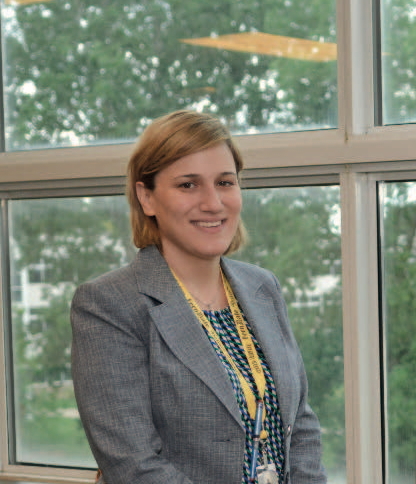
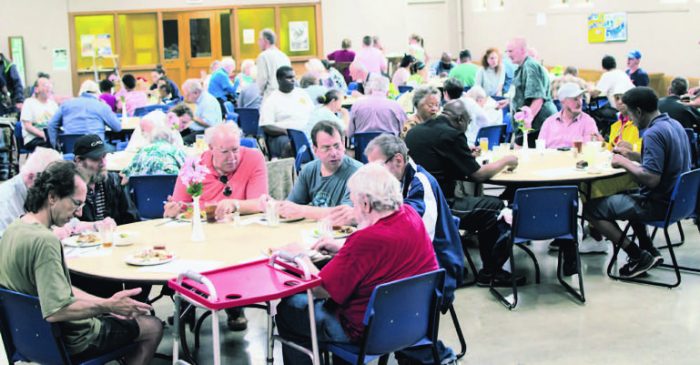
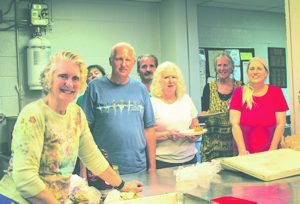 up for one month, and a core group of volunteers from the Methodist Church and Christ the Good Shepherd Catholic Church are always involved.” She adds, “They come out to run the dishwasher and do various tasks, but we are always looking for new people to head up a group, do the cooking.” The church is specifically looking for volunteers for meals in August and September.
up for one month, and a core group of volunteers from the Methodist Church and Christ the Good Shepherd Catholic Church are always involved.” She adds, “They come out to run the dishwasher and do various tasks, but we are always looking for new people to head up a group, do the cooking.” The church is specifically looking for volunteers for meals in August and September.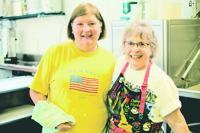 “They did Halloween last year and the 4th of July this year,” Mary says. “It’s a very festive atmosphere” when the Catholic church hosts, and they often have extras set up such as arcade machines for guests to enjoy.
“They did Halloween last year and the 4th of July this year,” Mary says. “It’s a very festive atmosphere” when the Catholic church hosts, and they often have extras set up such as arcade machines for guests to enjoy.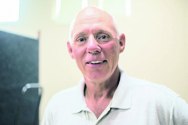 and for the general logistics involved, including seating and flow. For all other inquiries regarding upcoming church activities and how you can help, call the church office at 248.545.4467 and speak with Stacy, the church’s secretary.
and for the general logistics involved, including seating and flow. For all other inquiries regarding upcoming church activities and how you can help, call the church office at 248.545.4467 and speak with Stacy, the church’s secretary.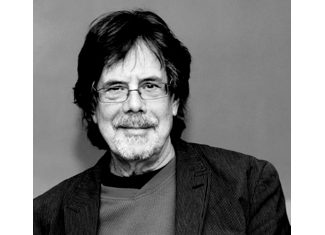
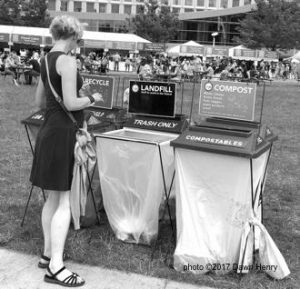 or virgin resin manufacturers (first-time-use plastics), is a relentless promoter of plastics recycling. They spend millions on public relations as part of a propaganda campaign to change the long-standing perception of their product as harmful to the environment.
or virgin resin manufacturers (first-time-use plastics), is a relentless promoter of plastics recycling. They spend millions on public relations as part of a propaganda campaign to change the long-standing perception of their product as harmful to the environment.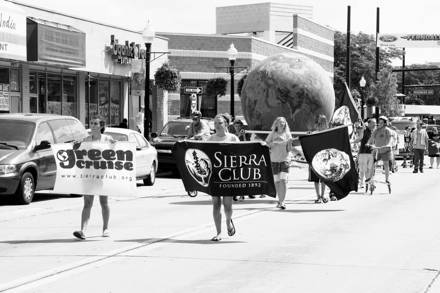
 the Green Cruise, says. “It’s an all-around environmental event, and it’s going to benefit more than just one charity and one idea; we’ll support a whole gamut of things such as energy conservation, using less fossil fuels, getting bad chemicals out of the air and native landscaping.”
the Green Cruise, says. “It’s an all-around environmental event, and it’s going to benefit more than just one charity and one idea; we’ll support a whole gamut of things such as energy conservation, using less fossil fuels, getting bad chemicals out of the air and native landscaping.”